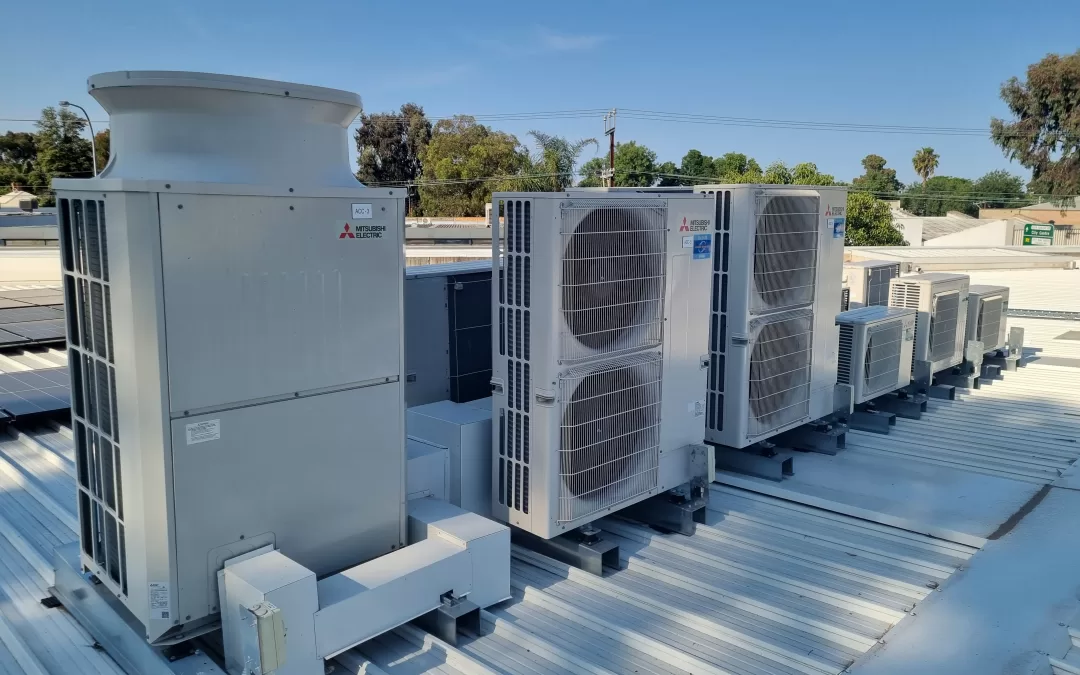Humidity control is crucial for maintaining a comfortable indoor environment. High humidity levels can lead to discomfort, mold growth, and even structural damage. HVAC systems are a powerful tool in managing these levels. But how is the HVAC system used to reduce humidity? Let’s explore its mechanisms and benefits.

Understanding Humidity and Its Effects
Humidity is the amount of moisture in the air. When it’s too high, it can cause problems for both your home and health. High humidity levels can lead to mold, dust mites, and uncomfortable living conditions. Sanitizing your HVAC system might also be necessary to combat these issues.
What Is an HVAC System?
An HVAC (Heating, Ventilation, and Air Conditioning) system is designed to manage indoor climate and air quality. It not only heats or cools a building but also ventilates and dehumidifies indoor air, making it an essential component of modern homes and businesses.
Components of an HVAC System
Understanding its components will help you better grasp how HVAC systems reduce humidity. Key components include the air conditioner, furnace, and ventilation system. Each plays a role in maintaining a balanced indoor environment.
Role of Air Conditioners in Dehumidification
The air conditioner is a critical part of the HVAC system when it comes to humidity reduction. Understanding CFM in HVAC is also crucial to optimize performance. It removes moisture from the air by cooling it, which allows water vapor to condense and drain out.
How the HVAC System Manages Humidity
Dehumidification Process
To effectively reduce humidity, HVAC systems use refrigeration cycles. Air conditioners cool the air, which reduces its ability to hold moisture, thus removing excess water vapor in the process.
Airflow’s Role in Humidity Control
Proper airflow is vital for efficient humidity control. Ensuring that your HVAC system has unblocked ducts and clean filters can optimize moisture reduction and help prevent system freeze-ups.
Importance of Ventilation
Ventilation systems work together with air conditioning to provide fresh, dry air into your home. They are also essential for removing stale air and ensuring good indoor air quality. Learn more about selecting the right HVAC solution.
Benefits of Reducing Humidity with HVAC Systems
Lowering indoor humidity offers numerous advantages, such as improved comfort, reduced allergens, and longer-lasting home structures. By using your HVAC system efficiently, you gain greater control over your indoor environment.
Impact on Comfort and Health
Controlling humidity ensures a more comfortable home setting. It can also reduce allergies and respiratory issues, making it crucial for family health.
Preservation of Home Structure
High humidity can damage wood and other building materials over time. Proper dehumidification can prevent damage and extend the life of your home.
Choosing the Right HVAC System for Humidity Control
Considerations When Selecting a System
When choosing an HVAC system, consider your climate, home size, and specific humidity needs. Proper sizing and professional installation are important for optimal performance.
Consulting a Professional
It’s wise to consult with an HVAC professional to evaluate your specific needs. Explore more technical insights here for deeper understanding and guidance.
Maintaining Your HVAC System for Optimal Performance
Regular maintenance, including filter changes and duct cleaning, is essential for keeping your HVAC system working efficiently and effectively reducing humidity.
Routine Check-ups
Schedule regular check-ups with a certified technician to ensure your system performs at its best, reducing humidity effectively.
DIY Maintenance Tips
While professional maintenance is crucial, homeowners can also perform basic tasks like changing air filters and checking for blockages to support system efficiency.
Conclusion
In conclusion, how is the HVAC system used to reduce humidity? By understanding its components, processes, and proper maintenance, homeowners and businesses can effectively manage indoor air quality. With the right HVAC system, you can enjoy a comfortable, healthy living environment.

FAQ
How often should I maintain my HVAC system?
It’s recommended to have your HVAC system checked twice a year to ensure optimal performance and humidity control.
Can I use a standalone dehumidifier along with my HVAC system?
Yes, a standalone dehumidifier can complement your HVAC system for additional humidity control in particularly damp areas.
Does an HVAC system improve air quality?
Yes, by reducing humidity and ventilating your home, an HVAC system can significantly improve indoor air quality.
This article contains affiliate links. We may earn a commission at no extra cost to you.






